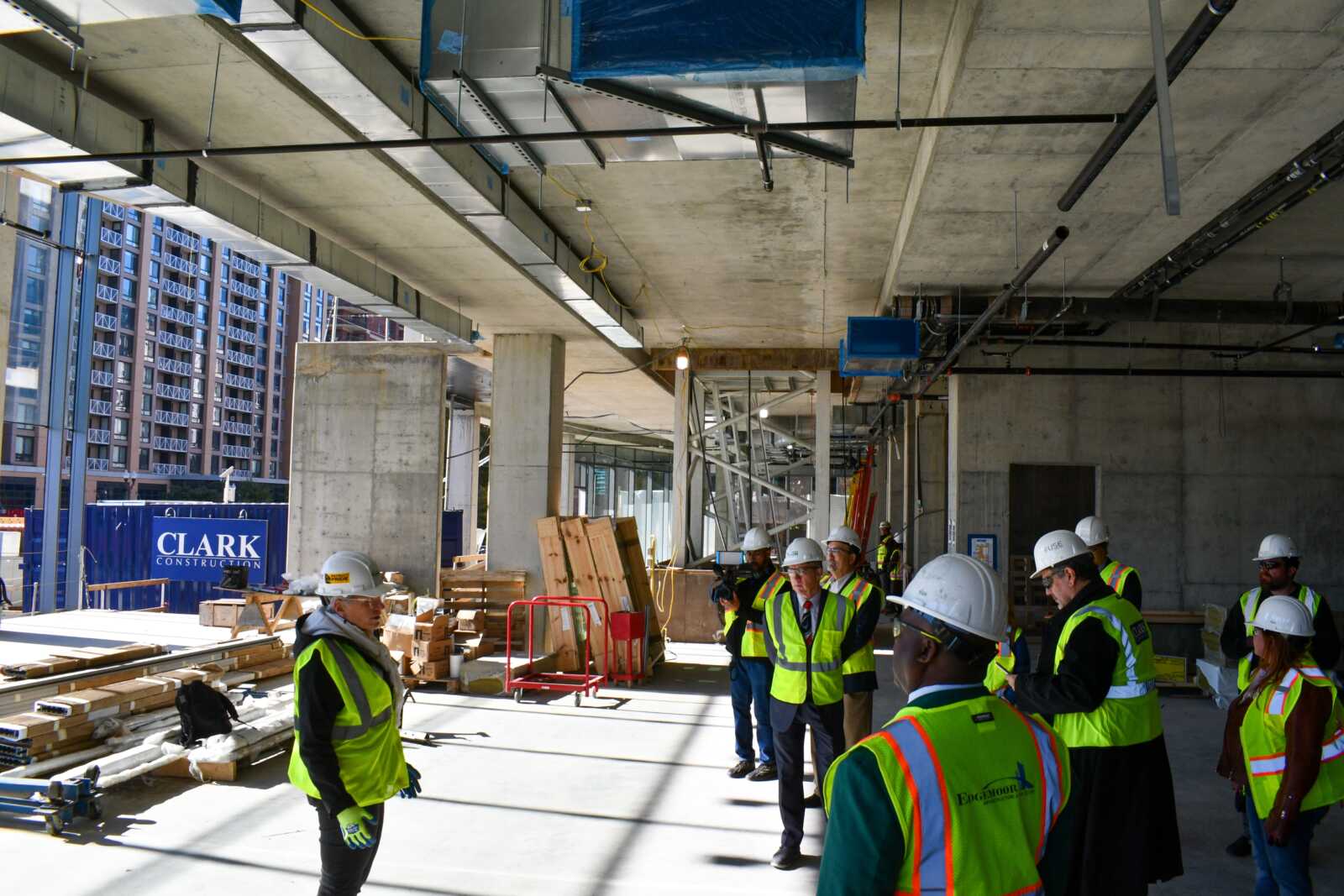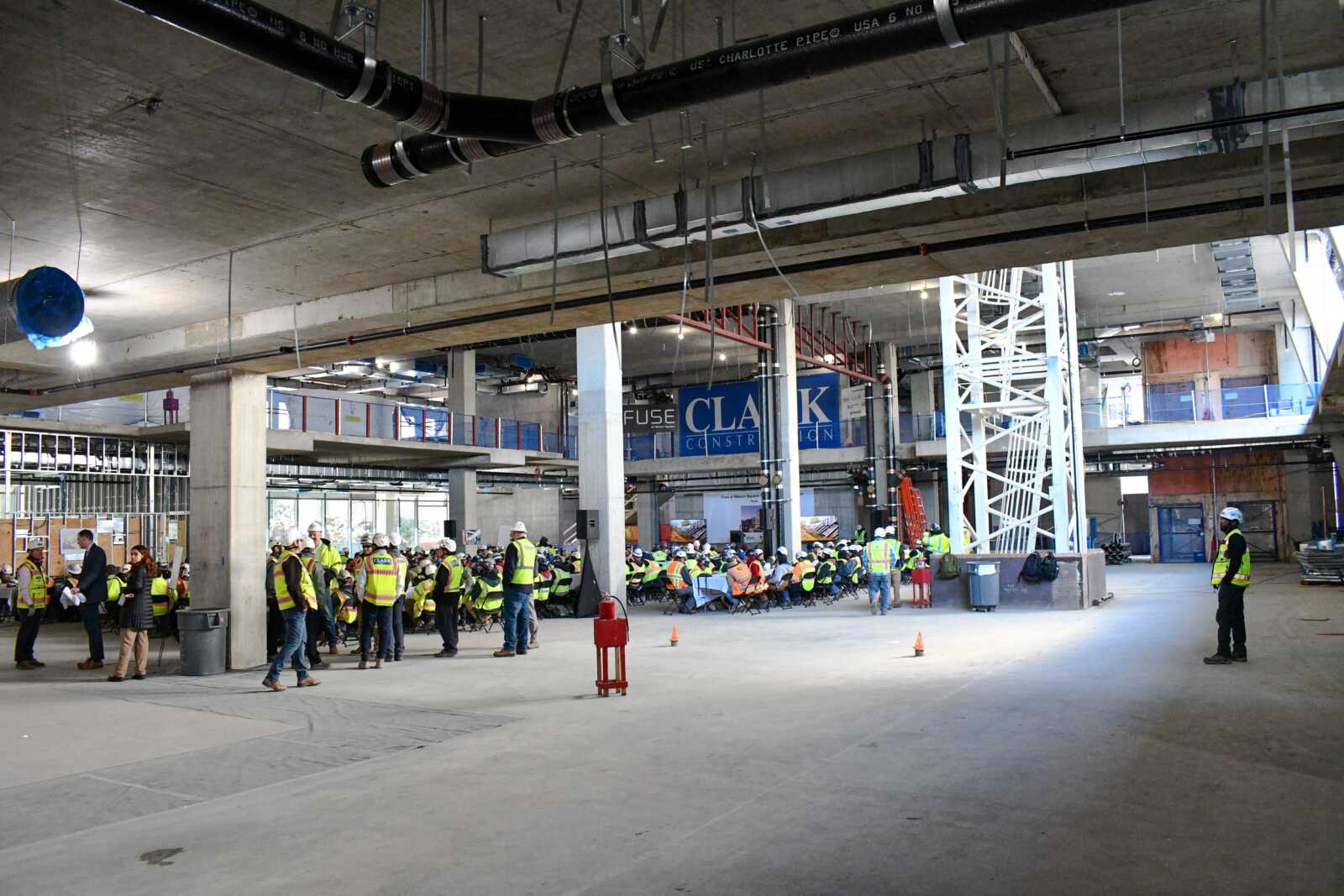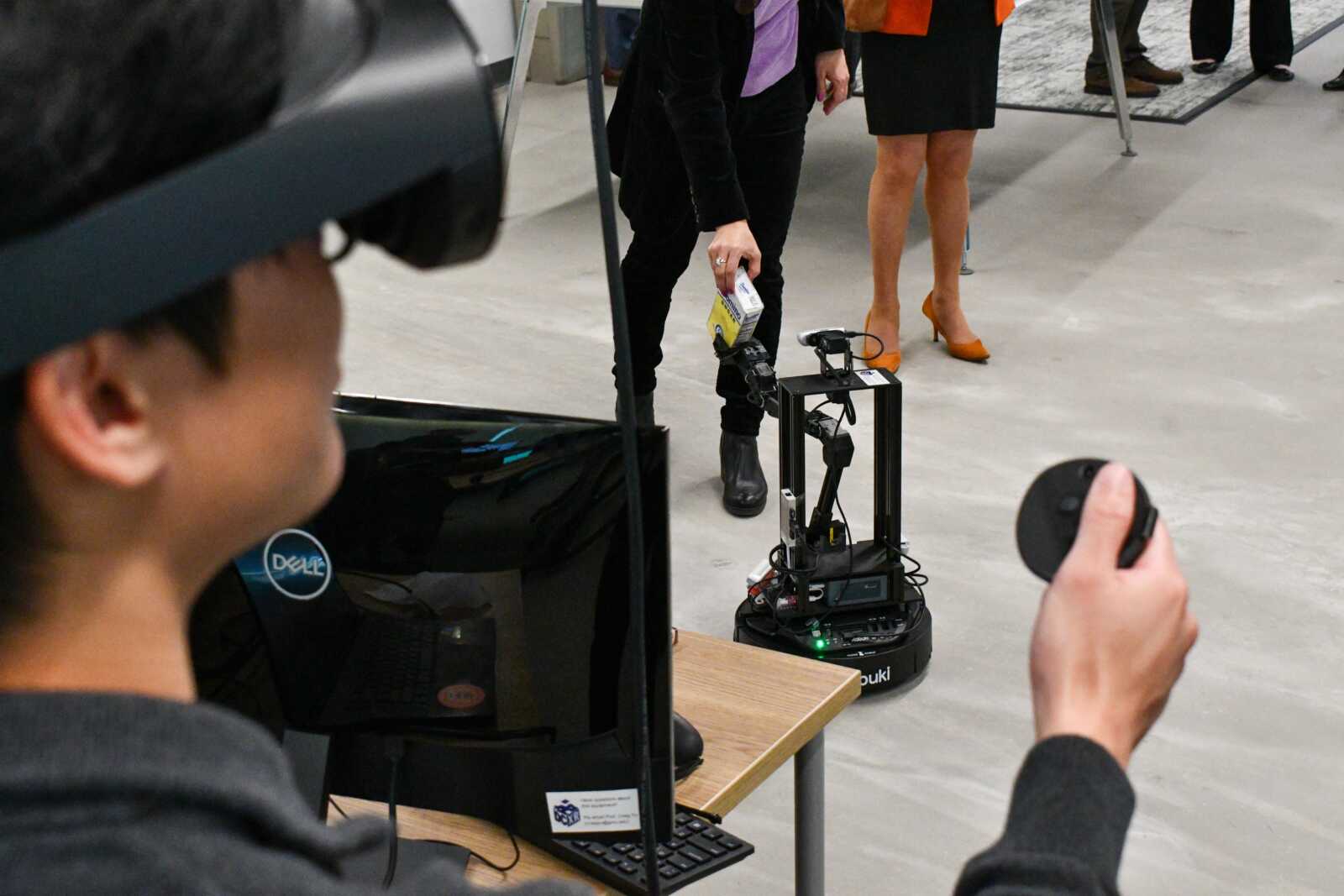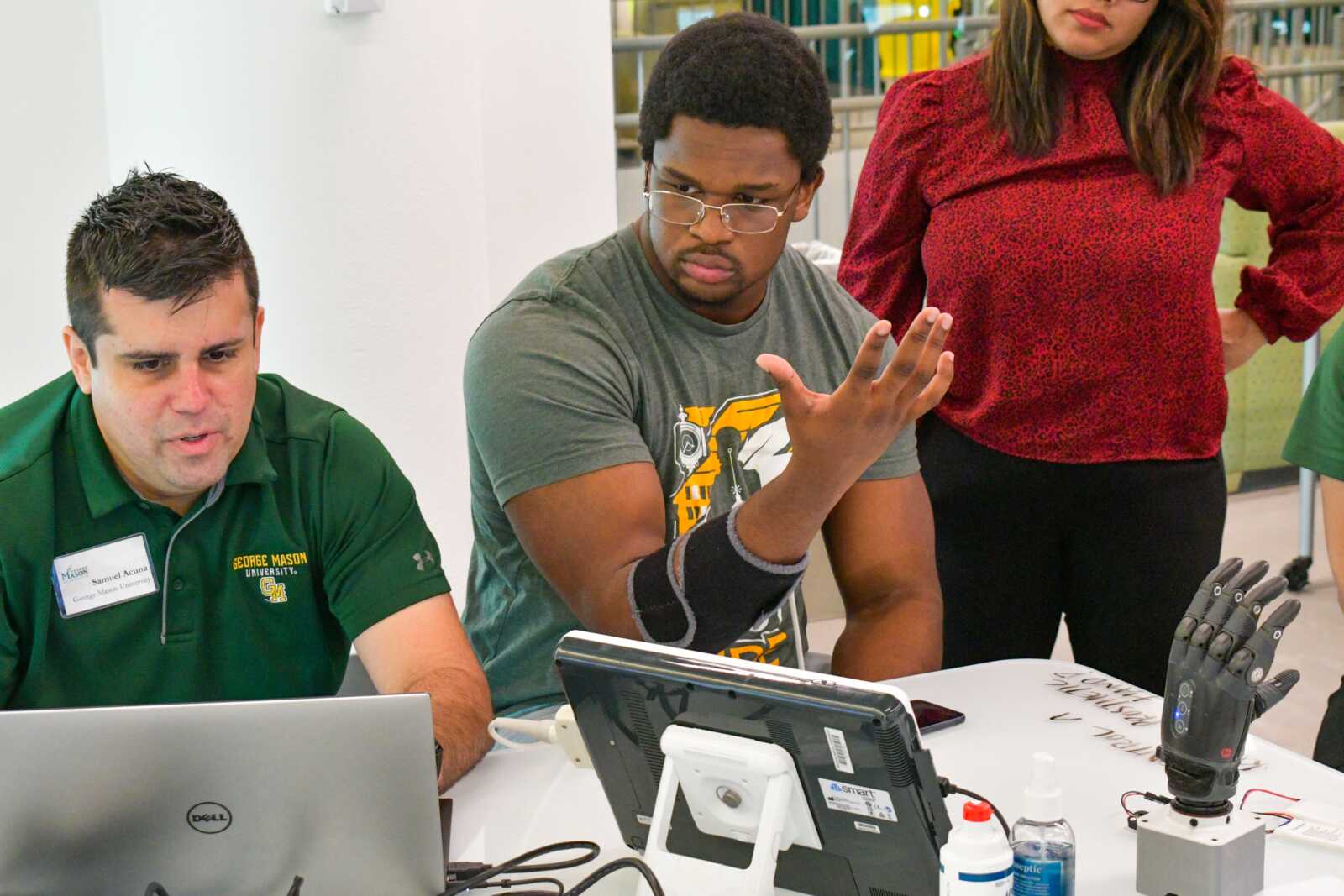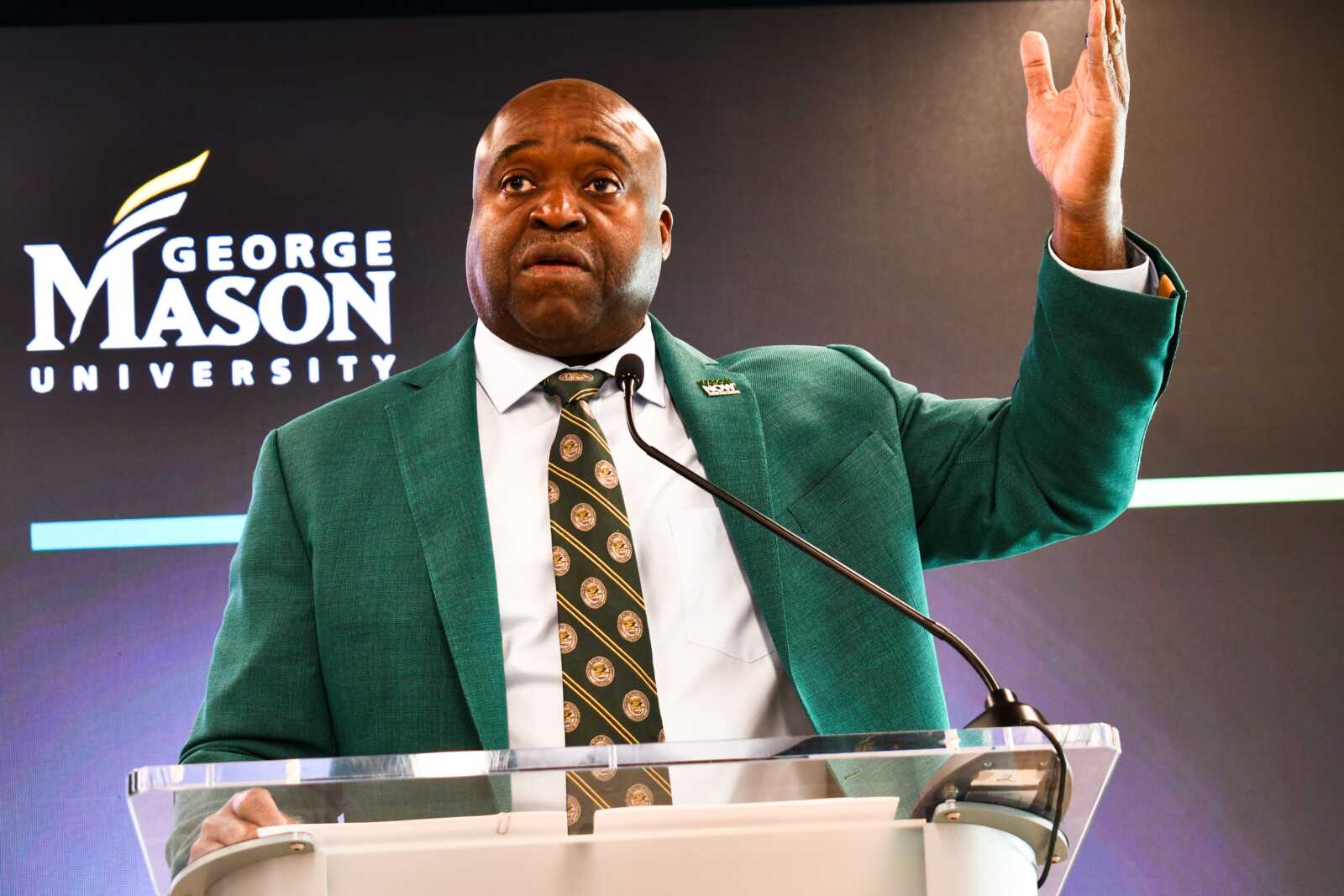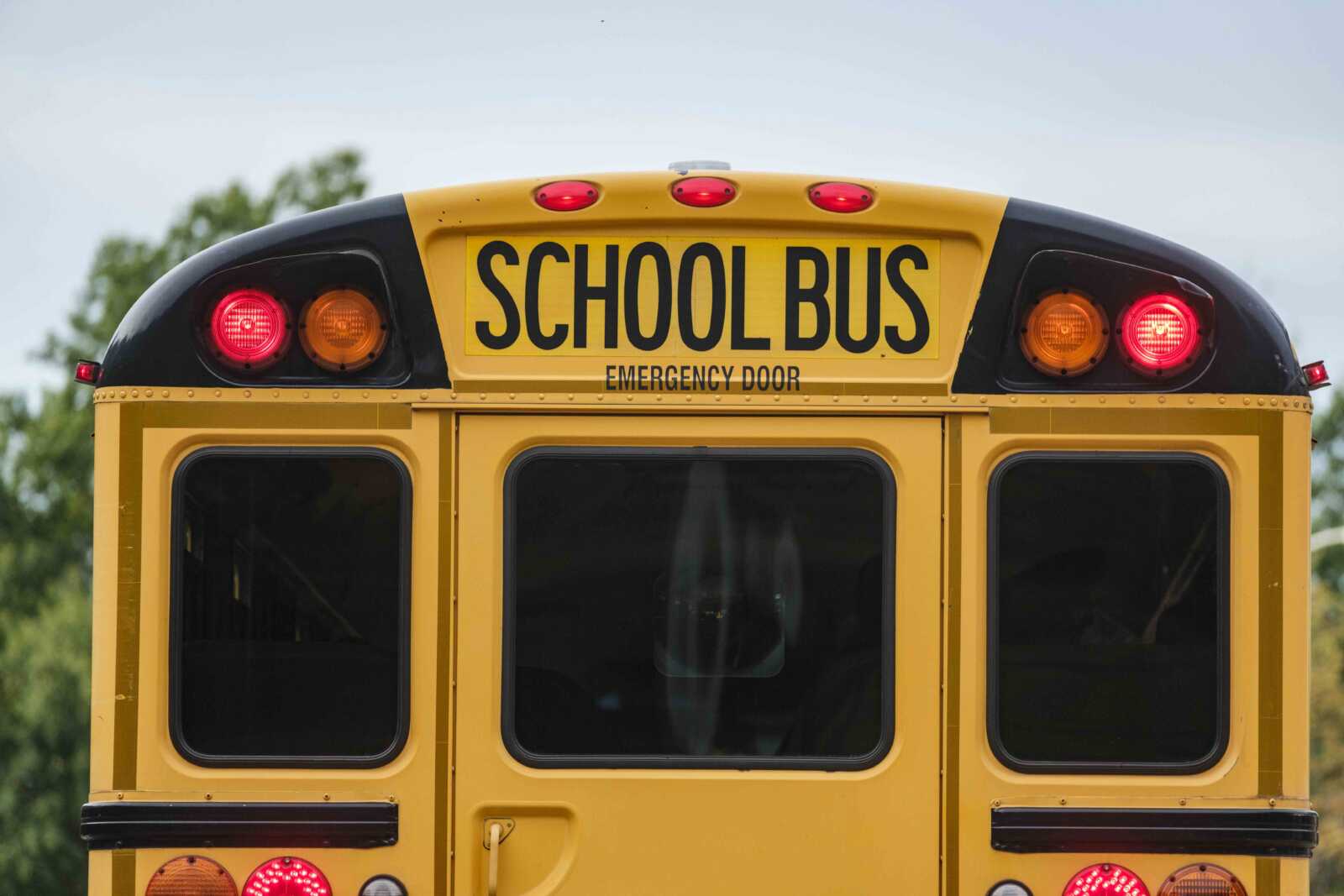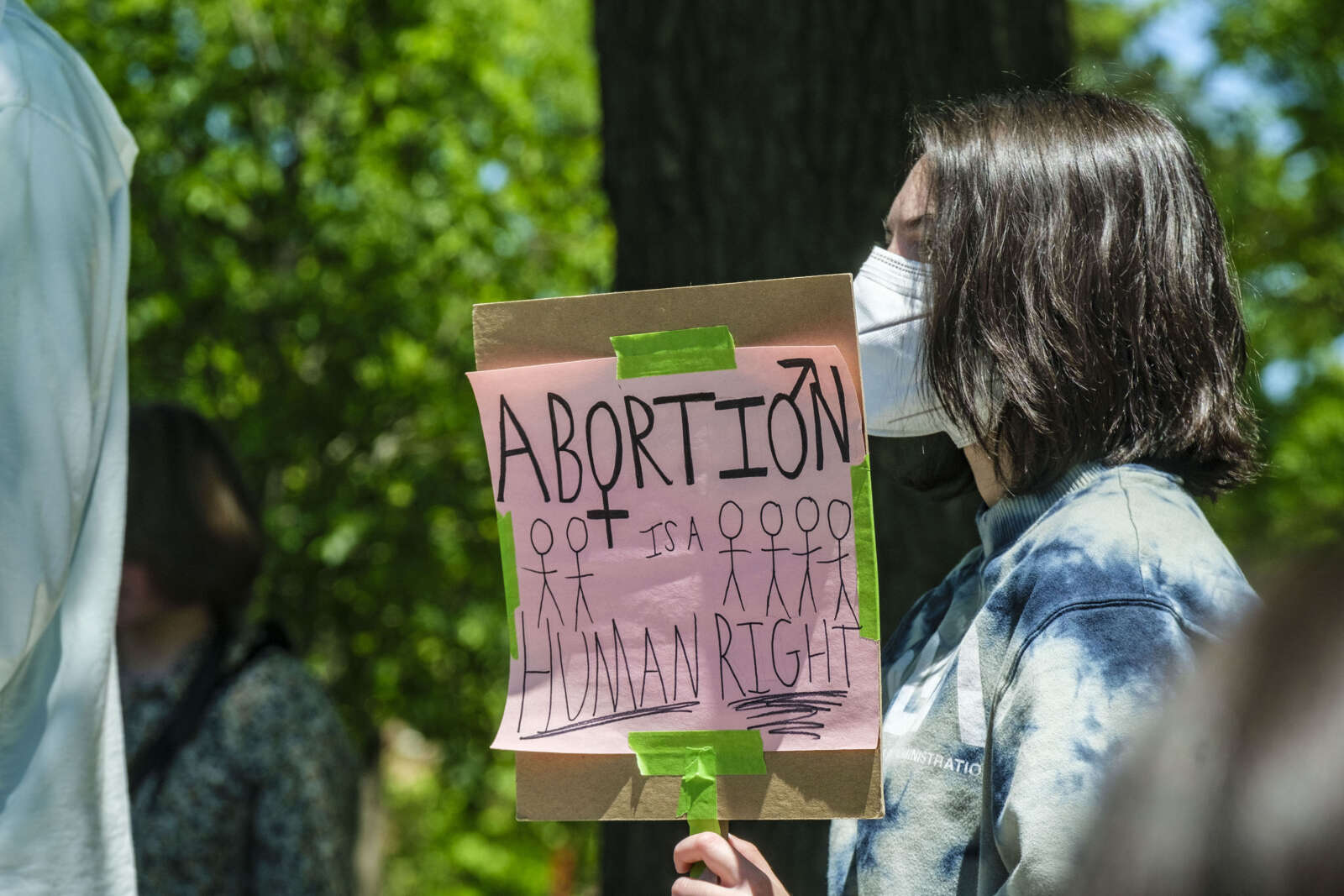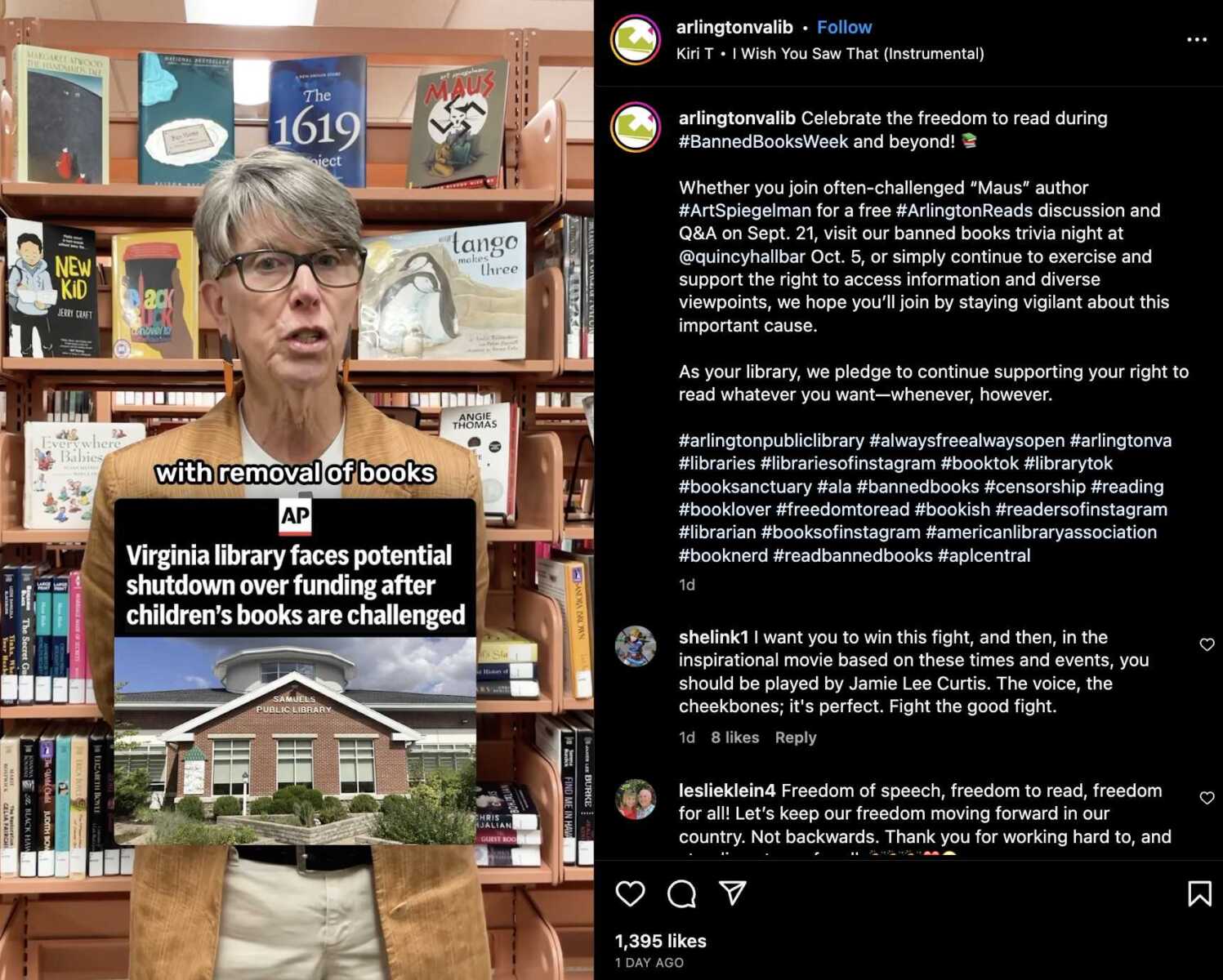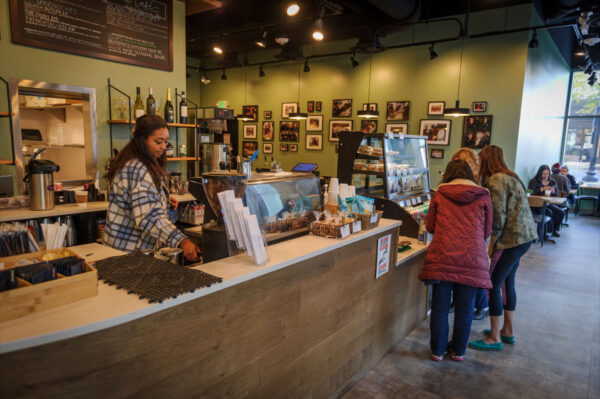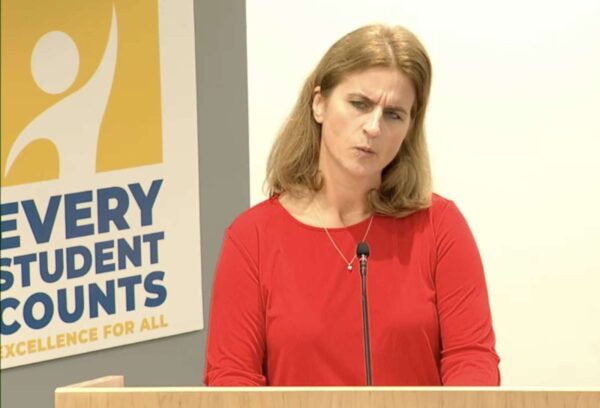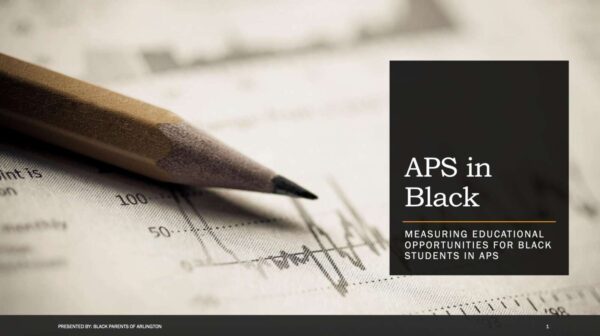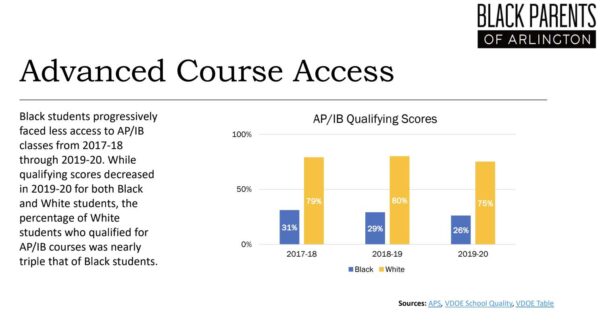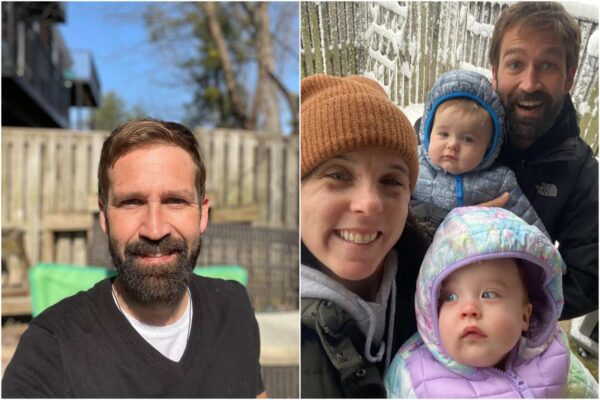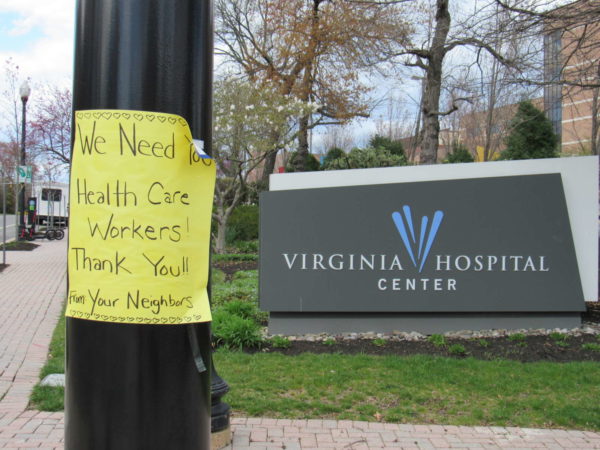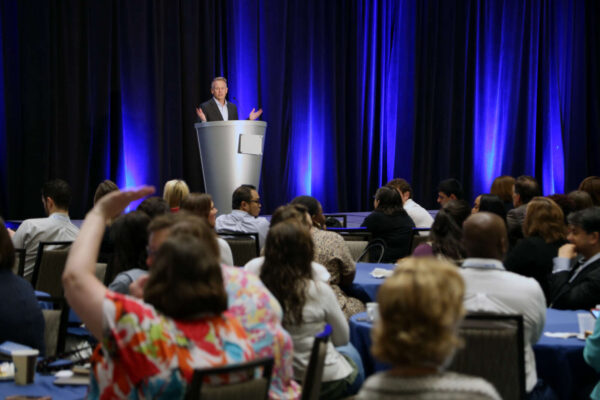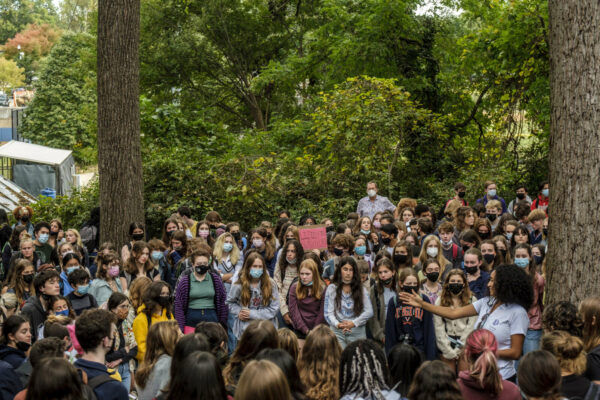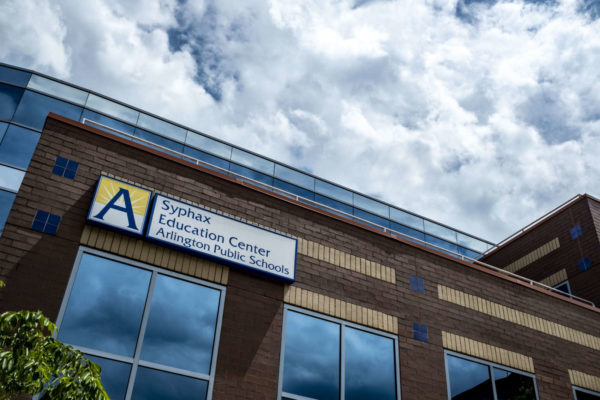The outer structure of George Mason University’s $235 million expansion project in Arlington is complete.
The university celebrated the “topping out” milestone last Friday with tours of the under-construction FUSE at Mason Square structure on its Virginia Square campus.
During the event, students and faculty showcased the types of work the new, tech-oriented facility will house, including the development of robotic limbs and disaster simulation research.
The university broke ground on the 345,000-square-foot building at 3351 Fairfax Drive in January 2022. Previously, the site was home to the old Kann’s Department store, which was demolished in March 2021.
Construction is expected to be completed by the end of 2025. The new facility is expected to serve 750 students initially and up to 2,000 students within the next five years, according to a GMU spokesperson. It will dedicate 60% of its space to university programs and lease the remaining area for retail and private office use.
The building will house GMU’s Institute for Digital Innovation and the newly minted School of Computing, which will offer courses in artificial intelligence, data analytics and cybersecurity.
The Arlington campus is already a hub for several of GMU’s schools, spanning policy, law, conflict resolution and business.
The university’s president, Gregory Washington, told ARLnow that housing technology and social science disciplines under one roof will improve how society adopts new technologies, such as artificial intelligence.
“Engineers alone can’t do it. You need humanists. You need social scientists, and you need business people. We got all of them here working together on the next generation of problems,” he said. “That’s the difference you will see here that you don’t see many other places,”
Washington is also betting on the new facility in Arlington attracting talent that might otherwise choose bigger-name research institutions, such as the Massachusetts Institute of Technology.
“If you go to MIT, what you’ll find is that the facility we’re building is… better than 95% of the facilities they have,” he said.
During the event, Arlington Economic Development Director Ryan Touhill highlighted the potential for the new facility to energize the local tech sector, which has grown rapidly in recent years, particularly with the arrival of major tech companies like Amazon.
“This project can’t be coming online at a better time,” he said. “We’re really focused in Arlington County and regionally on growing our homegrown tech sector. And that’s part of our long-term economic growth strategy.”




